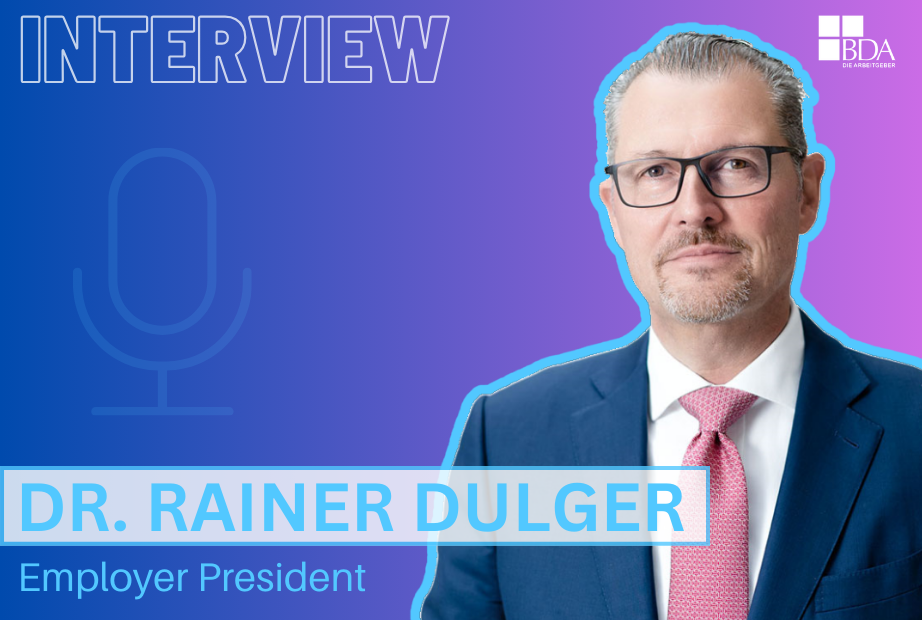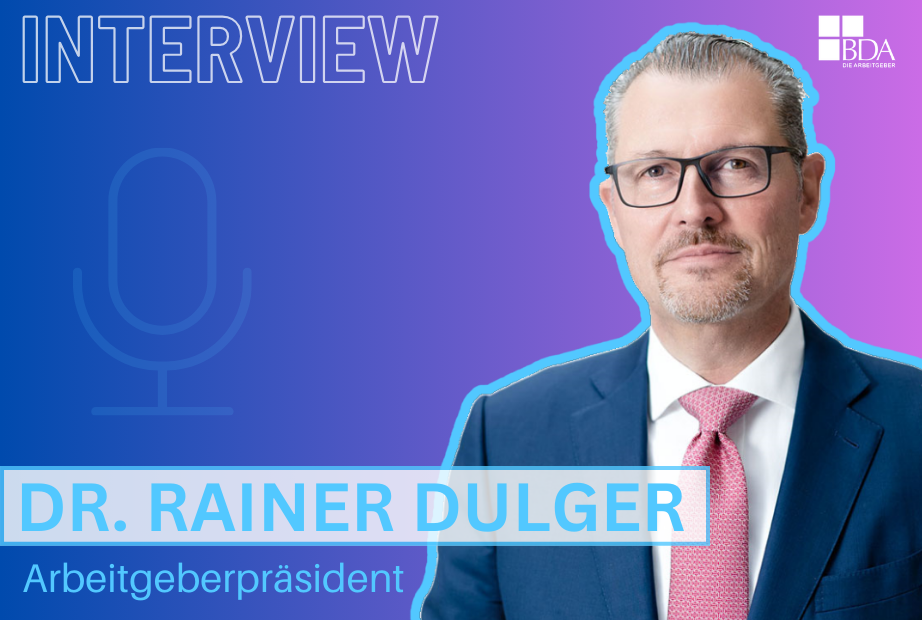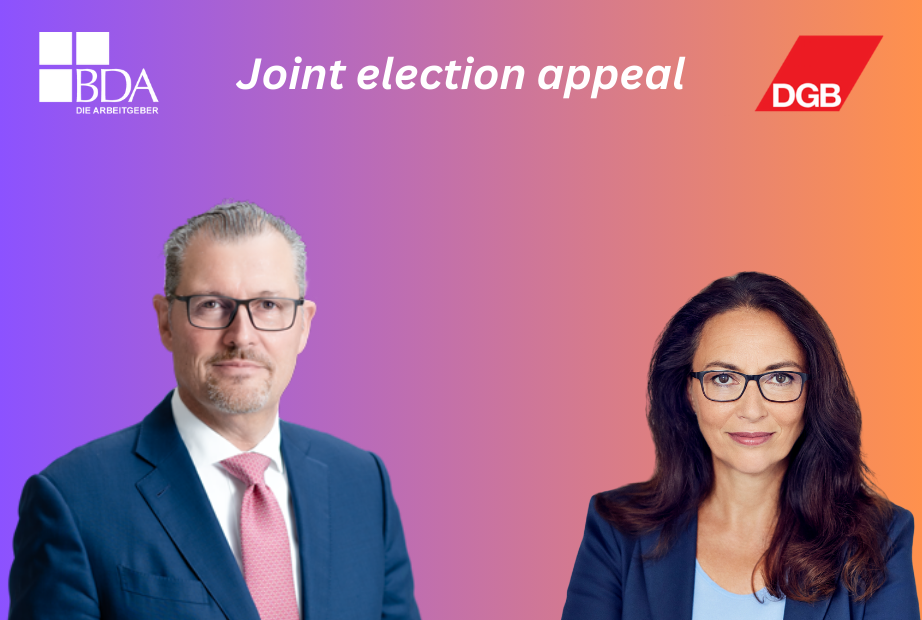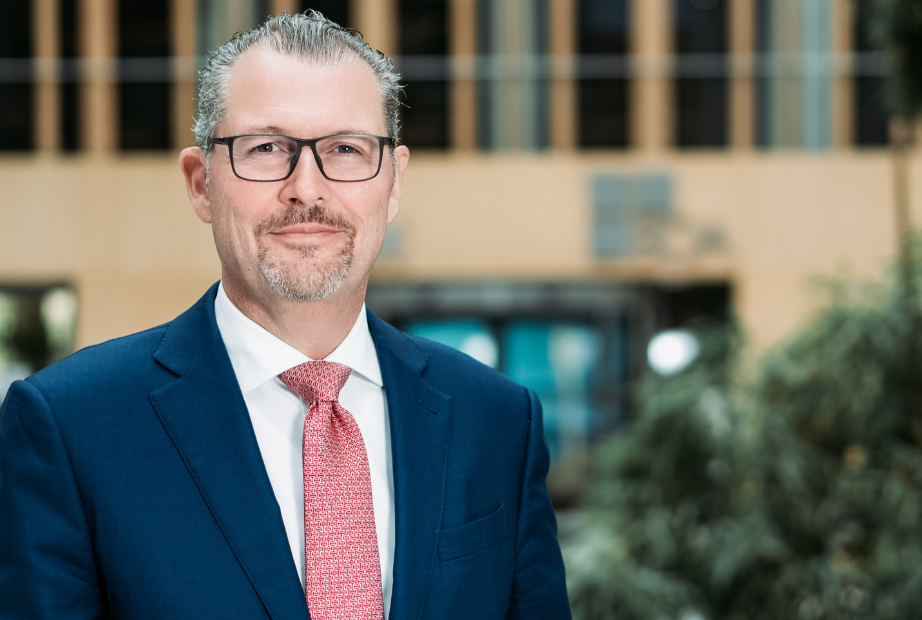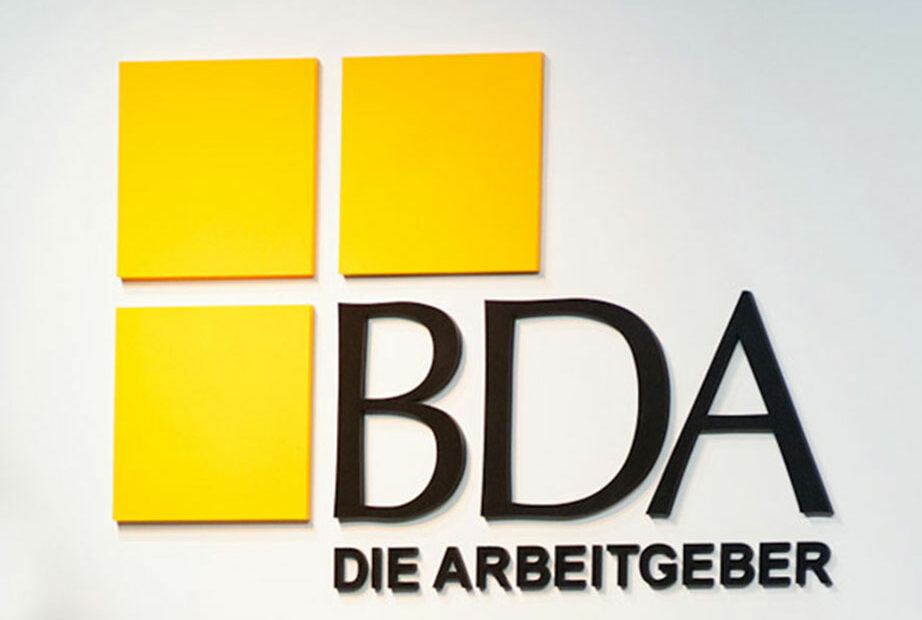News at a glance
20. February 2025
Interview with employer president Dr. Rainer Dulger in Handelsblatt...
20. February 2025
Joint election appeal by Employers' President Dr. Rainer Dulger and Yasmin Fahimi, Chairwoman of the German Trade Union Confederation...
21. January 2025
Employers' President Dr. Rainer Dulger on the inauguration of US President Donald Trump:...
14. January 2025
Commenting on today's Opinion of the Advocate General before the ECJ on the EU Minimum Wage Directive, the BDA...
30. December 2024
On the occasion of the introduction of the minimum wage ten years ago, BDA Managing Director Steffen Kampeter...







